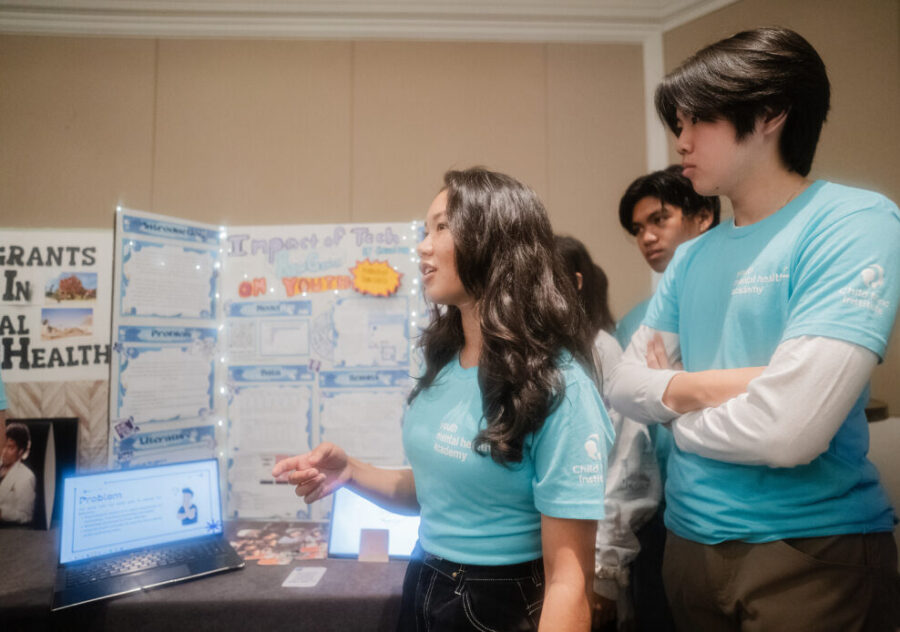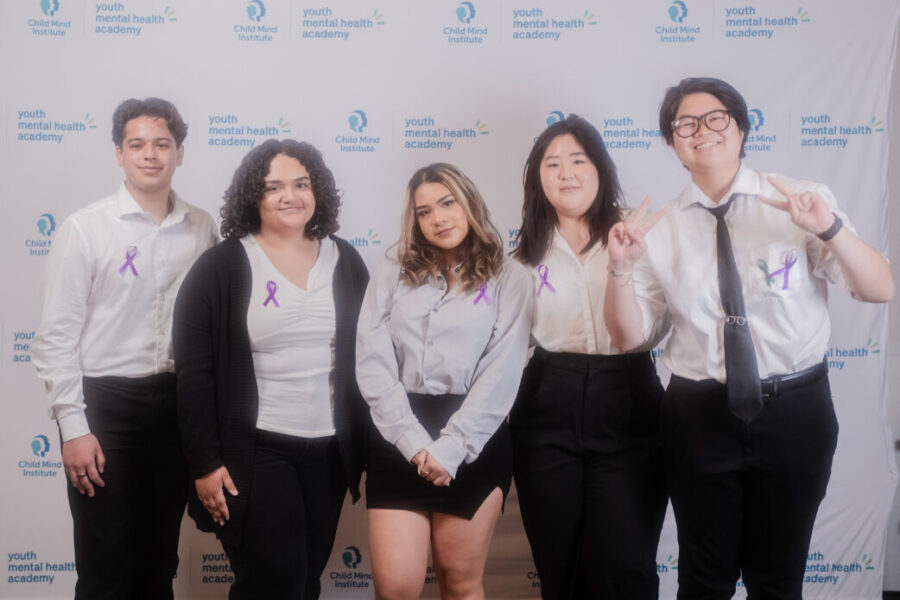What You'll Learn
YMHA runs for five weeks during the first summer, regularly throughout the school year, and for up to six weeks during the second summer.

Mental Health Science & Practice
During your first summer, participate in a 5-week paid program led by instructors and professionals who work in mental health fields. Through interactive lessons and discussions, you will delve deep into topics concerning mental health effects, treatment, research, and related careers.
The curriculum is concentrated on 3 core areas:
- Mental health disorders, health inequities, and dissemination
of information - Mental health career options and requirements
- Academic enrichment activities and college readiness

Capstone Project
Synthesize the information, skills, and practices you’ve acquired during the summer academy to develop a culminating capstone project with the support of your mentor. The capstone project will convey your understanding of a specific mental health focus of your choice, and will be comprised of a research paper, creative component, and display.

School Year Workshops & Psych Talks
Stay engaged and informed throughout the school year with monthly workshops led by industry experts and regular check-ins with your mentor. Expand on topics covered at the summer academy, network with professionals and peers, and keep motivated with academic and career aspirations.
Interactive workshops include:
- Continued education on mental health
- Navigating college applications and writing personal statements
- Career fairs and expert panels

Summer Internship
During your second summer, gain real-world experience working as an intern in a mental health-related field. You will be grouped based on interest and location and paired with a youth serving community-based organization or research organization. Through approximately 100 hours, you will build career skills, contribute to the success of an organization, and continue to develop professional networks.
Interns will gain experience:
- Fielding research and analyzing data
- Using data to develop recommendations for mental health interventions and advocacy
- Collaborating with peers on issues that are meaningful to your community
